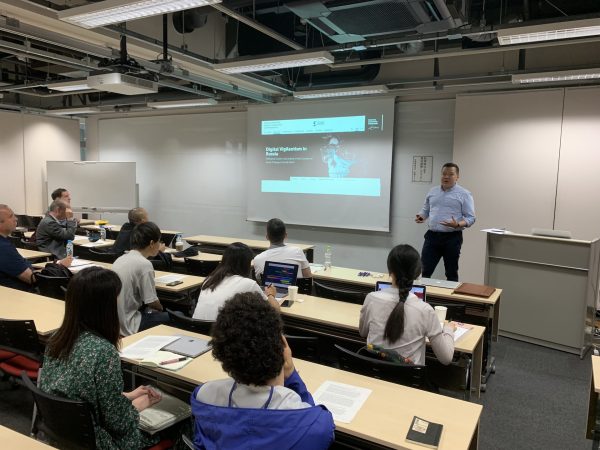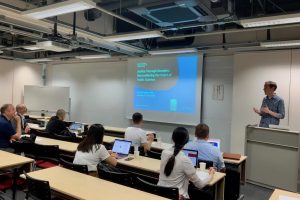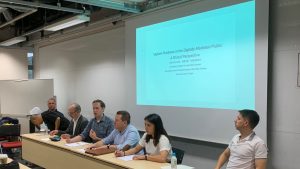
July 18, 2019
Report: Vigilant Practices in the Digitally-Mediated Public: A Global Perspective
(English text follows Japanese)
2019年7月2日、ワークショップ「Vigilant Practices in the Digitally-Mediated Public: A Global Perspective」が東京大学本郷キャンパスにて開催されました。エラスムス・ロッテルダム大学、および東京大学の教員・学生が登壇し、オンライン上の自衛活動(“online vigilantism”)についてアメリカ、オランダ、ロシア、中国、日本の実態をふまえながら発表・議論がおこなわれました。後半のディスカッションでは、online vigilantismの根底にあるものは、単にインターネットに対する技術的なアフォーダンスではないこと。それよりもむしろ、拡大する社会的格差や不平等、グローバルにつながる今日の政治や法制度のありようが、現在のままでは機能しないという問題であることが指摘され、オンライン上に広がる自衛活動という枠組みを超えた議論が展開されました。
The workshop “Vigilant Practices in the Digitally-Mediated Public: A Global Perspective” was held on July 2, 2019 at the University of Tokyo. The workshop explored how the Internet and networked publics have led online justice seekers to take grassroots action, rather than work through local or national justice systems, to right perceived wrongs and to speak out against perceived injustices. This form of cyber-crowdsourcing has enabled netizens to collectively track down and publish on the Internet personal information with the aim of shaming and punishing those who are deemed to be engaged in corrupt practices or immoral behaviour.
Four presenters coming from Erasmus University Rotterdam and University of Tokyo introduced their research about online vigilantism in United States, the Netherlands, Russia and China from different perspectives. Daniel Trottier argued that with the support of digital devices and platforms, more various actors engaged in and reshaped the court of public opinion and legal proceedings besides journalistic interventions in previous academic attentions. Rashid Gabdulhakov discussed the complex influence of Soviet control culture on contemporary surveillance practices in Russia through the power of the state, the design of platforms, and the mobilization of individuals. Qian Huang explored the role of nationalism in pushing Chinese vigilant culture from peripheral to mainstream. By considering a specific genre of content produced by underclass Internet users, Jiaxi Hou proposed the technologically-mediated visibility could be transformed from empowering social recognition to triggering various disciplinary forces both from the non-underclass vigilante public to the state power in cooperation with media platforms.
The four talks were respectively commented on by Professors Jason G. Karlin, James Babb, Shunsuke Nozawa, and William Feeney from University of Tokyo. In the second half of the workshop, a roundtable discussion was held among all the presenters, discussants, and audiences. The discussion explored how Internet vigilantism is expressed in the Japanese context and what social factors contribute to its prevalence. At the root of digital vigilantism is not just the technical affordances of the Internet, but the growing problem of social inequality and the ineffectiveness, or corruptness, of today’s political and justice systems around the globe. Vigilantism breeds in times and places in history when people have lost confidence in society’s institutions. This workshop was about more than just emerging forms of online practice, but is also about how corruption drives inequalities across the globe.
– Vigilant Practices in the Digitally-Mediated Public: A Global Perspective
Text: Jason G. Karlin (Associate Professor) and Jiaxi Hou (PhD Student)
Photo: Jiaxi Hou (PhD Student)
Japanese Translation: Kiyoko Toriumi (Project Assistant Professor)
主担当教員Associated Faculty Members
教授
KARLIN, Jason G.
- アジア情報社会コース
Professor
KARLIN, Jason G.
- ITASIA program




